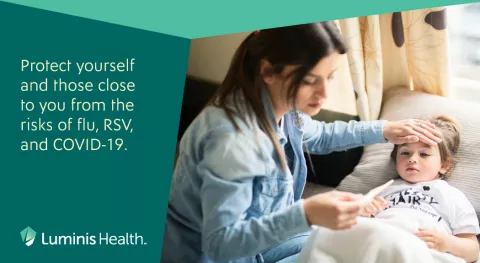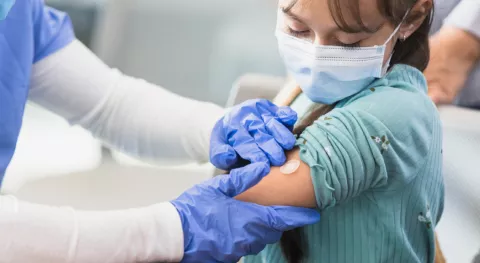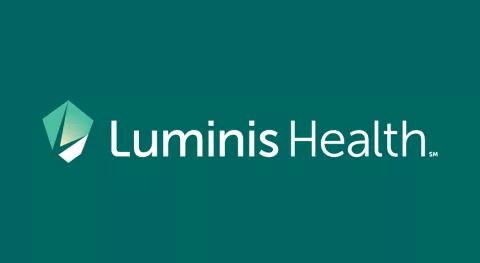Effective January 20, 2026, masks are encouraged for all staff, patients and visitors at all Luminis Health locations and will remain encouraged through the end of the influenza season. Thank you for your patience as we continue to care for our community.
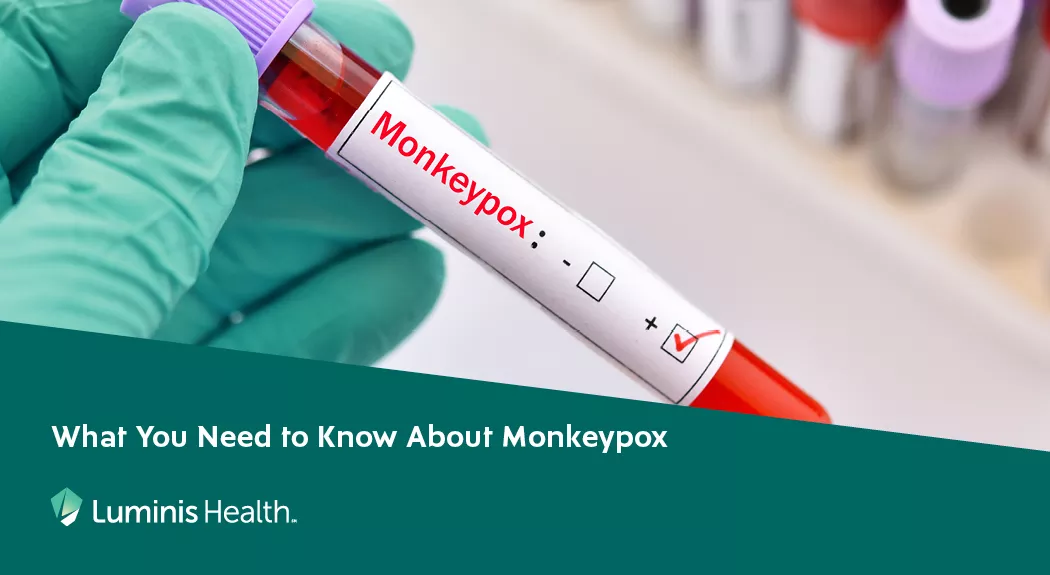
Now that the World Health Organization has declared monkeypox a global health emergency, you may have questions and concerns about the virus and how it is spread.
What is monkeypox?
According to the Centers for Disease Control and Prevention (CDC), monkeypox is a rare disease caused by a virus—part of the same family as smallpox. Monkeypox symptoms are similar to smallpox symptoms, but milder and rarely fatal.
Prior to the 2022 outbreak, monkeypox had been reported in people in several Central and Western African countries. Previously, almost all monkeypox cases in people outside of Africa were linked to international travel to countries where the disease commonly occurs.
How does it spread?
While many of those affected in the current global monkeypox outbreaks are gay, bisexual, or other men who have sex with men, anyone who has been in close contact with someone who has monkeypox can get the illness.
Monkeypox spreads in different ways. The virus can spread from person-to-person through:
- Direct contact with the infectious rash, scabs or body fluids
- Respiratory secretions during prolonged, face-to-face contact, or during intimate physical contact, such as kissing, skin-to-skin contact or sex
- Touching items (such as clothing or linens) that previously touched the infectious rash or body fluids
- Pregnant people can spread the virus to their fetus through the placenta
Monkeypox can spread from the time symptoms start until the rash has fully healed and a fresh layer of skin has formed. Unlike other diseases and illnesses, asymptomatic individuals (those who do not have monkeypox symptoms) cannot spread the virus to others. At this time, it is not known if monkeypox can spread through semen or vaginal fluids.
What are the common symptoms?
Symptoms of monkeypox can include:
- Fever
- Headache
- Muscle aches and backache
- Swollen lymph nodes
- Chills
- Exhaustion
- A rash that can look like pimples or blisters that appears on the face, inside the mouth and on other parts of the body, like the hands, feet, chest, genitals or anus
The rash goes through different stages before healing completely. The illness typically lasts two to four weeks. Sometimes, people get a rash first, followed by other symptoms. Others only experience a rash.
How to avoid contracting monkeypox
You can take a number of steps to prevent contracting monkeypox:
- Avoid close, skin-to-skin contact with people who have a rash that looks like monkeypox
- Do not touch the rash or scabs of a person with monkeypox
- Do not kiss, hug, cuddle or have sex with someone with monkeypox
- Do not share eating utensils or cups with a person with monkeypox
- Do not handle or touch the bedding, towels or clothing of a person with monkeypox
- Wash your hands often with soap and water or use an alcohol-based hand sanitizer
If you are sick with monkeypox:
- Isolate at home until all lesions have resolved, the scabs have fallen off and a fresh layer of intact skin has formed
- If you have an active rash or other symptoms, stay in a separate room or area away from people or pets you live with, when possible
How is it treated?
There are no treatments specifically for monkeypox virus infections but because monkeypox and smallpox viruses are genetically similar, antiviral drugs and vaccines developed to protect against smallpox may be used to prevent and treat monkeypox virus infections.
Antivirals, are sometimes recommended for people who are more likely to get severely ill, like patients with weakened immune systems. If you have symptoms of monkeypox, you should talk to your healthcare provider.
According to the CDC and Maryland Department of Health, vaccination for monkeypox is not currently recommend for the general public. Vaccine resources are being reserved for individuals who have had known close contact with someone infected with monkeypox and for those who are in the highest risk population.
This article was originally published in the Enquirer Gazette.
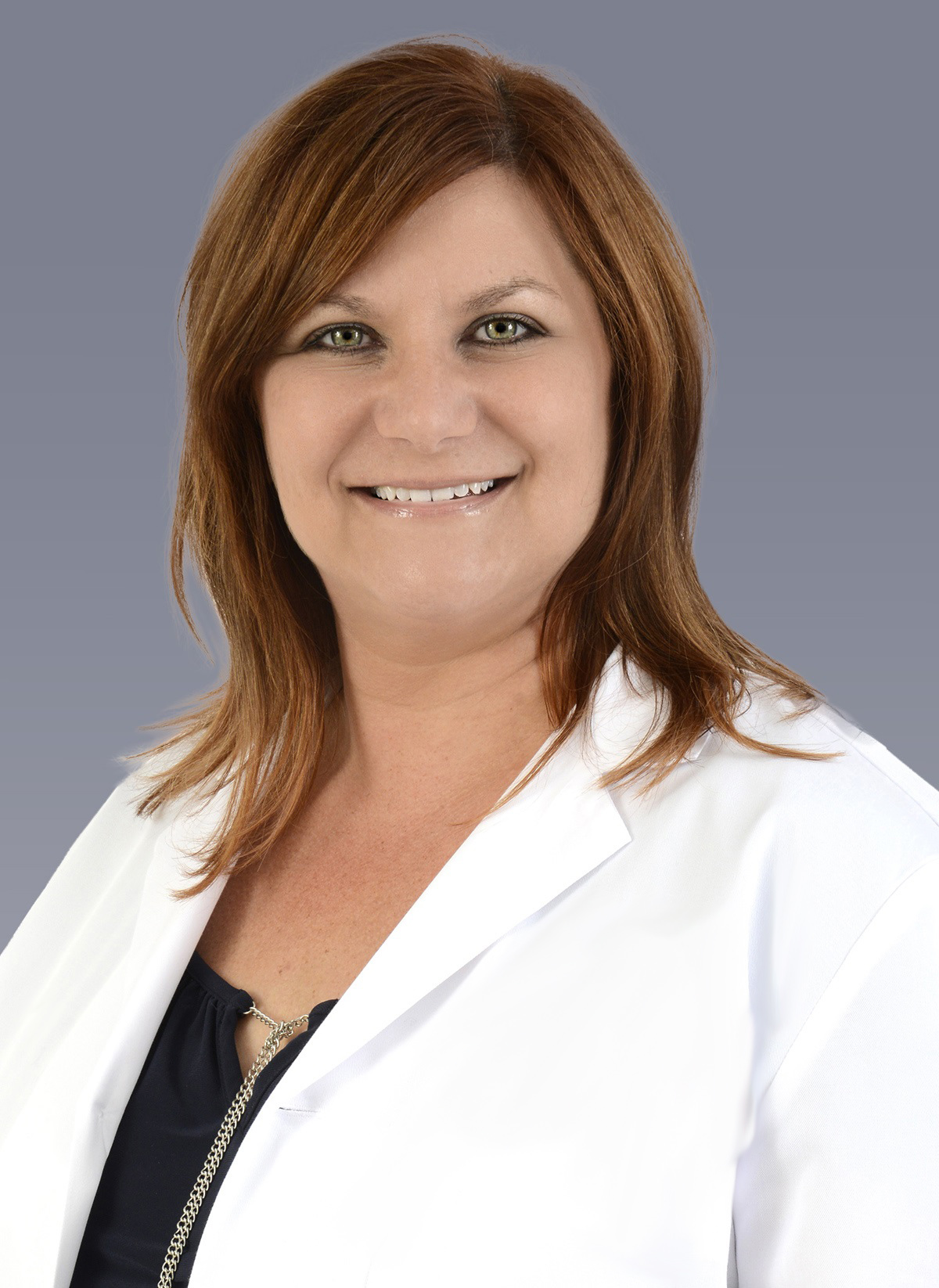
Jean Murray, RN, MSN, CIC, is the System Director of Infection Prevention and Control at Luminis Health. Her 29-year career as a registered nurse includes over 26 years of experience in infection control, outbreak surveillance and epidemiology. Jean is certified in Infection Control (CIC) and is an active member of the Association for Professionals in Infection Control and Epidemiology (APIC) and the Greater Baltimore Chapter.
